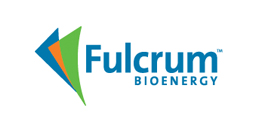Cathay Pacific Airways is the first airline investor in Fulcrum BioEnergy, Inc. The investments was made as part of the airline’s biofuel strategy and to help it achieve a target of carbon-neutral growth from 2020. Fulcrum is focused on the development and commercialization of converting municipal solid waste into sustainable aviation fuel or “biojet fuel”. Cathay Pacific also has an option for further investment.
“We are very pleased to become the first airline investor in this sustainable biofuel developer. We are well aware of the impact the aviation industry has on the environment  and have been doing a great deal to minimize our own impact,” said Cathay Pacific Chief Executive Ivan Chu. “We are pleased to have identified Fulcrum as a strategic business partner that has the necessary vision and technological know-how to help Cathay Pacific pursue the use of biojet fuels. These fuels are an important component of our sustainable development strategy, under which we aim to achieve carbon-neutral growth from 2020.”
and have been doing a great deal to minimize our own impact,” said Cathay Pacific Chief Executive Ivan Chu. “We are pleased to have identified Fulcrum as a strategic business partner that has the necessary vision and technological know-how to help Cathay Pacific pursue the use of biojet fuels. These fuels are an important component of our sustainable development strategy, under which we aim to achieve carbon-neutral growth from 2020.”
Cathay Pacific has also negotiated a long-term supply agreement with Fulcrum for an initial 375 million U.S. gallons of sustainable aviation fuel over 10 years (representing on an annual basis approximately 2% of the airline’s current fuel consumption) that meets all the airline’s technical requirements and specifications. Fulcrum plans to commence construction of its first commercial plant later this year and to build large scale, waste-to-renewable jet fuel plants at multiple locations, including locations strategic to the Cathay Pacific network, primarily in North America.
Cathay Pacific Biofuel Manager Jeff Ovens said of their technology, “Fulcrum has successfully demonstrated a process of converting municipal solid waste feedstock into sustainable aviation fuel at its scale demonstration facility. The feedstock will be pre-sorted to remove any recyclables prior to being processed into fuels. The company has proved that its technology is viable and has supply commitments in place for feedstock needed for the fuel production. These supply commitments will cover both near-term and future developments.”
According to Jim Macias, CEO of Fulcrum BioEnergy, jet fuel produced by Fulcrum’s waste-to-fuels process will reduce lifecycle carbon emissions when used in aircraft or road  transport by more than 80 percent when compared to traditional fuels derived from crude oil and other fossil sources. This process also reduces the amount of municipal solid waste going into landfill sites and the methane gas emissions that result from this. If not captured, methane gas is 21 times more potent than carbon dioxide as a global warming contributor.
transport by more than 80 percent when compared to traditional fuels derived from crude oil and other fossil sources. This process also reduces the amount of municipal solid waste going into landfill sites and the methane gas emissions that result from this. If not captured, methane gas is 21 times more potent than carbon dioxide as a global warming contributor.
“We value our strategic relationship with Cathay Pacific, one of the world’s premier airlines. Cathay Pacific shares our vision and plan to bring a whole new source of sustainable fuel to the airline industry,” added Macias. “A new fuel that has the exact same molecules as fossil fuel but is cleaner, lower in carbon, renewable and lower cost than traditional fossil fuels. Cathay Pacific is really stepping up to help accelerate deliveries of this fuel to the market. This relationship adds to Fulcrum’s existing feedstock, technology and fuel off-take partners that enhance Fulcrum’s low-cost business model for the production and sale of large volumes of low-carbon, jet fuel.”

